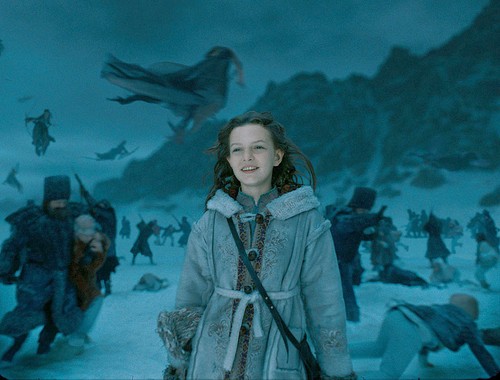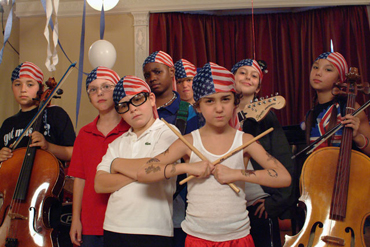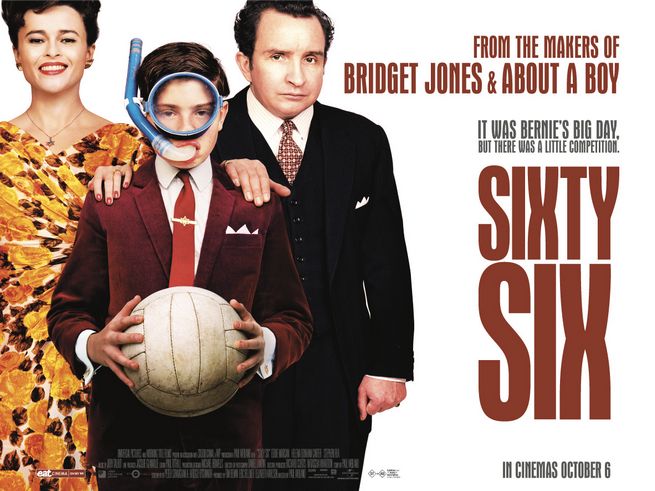More thoughts on “The Golden Compass”
Posted on December 9, 2007 at 8:24 pm

Very worthwhile readings on “The Golden Compass” and the controversy:
In the LA Times, Laura Miller talks about the emailed claims that author Philip Pullman is anti-relgion.
Snopes lists this particular rumor as “true,” presumably because the e-mails use a few genuine, if cherry-picked, quotations from Pullman’s writings and press interviews. But that doesn’t keep the whole thing from being fundamentally ridiculous.
Most preposterous, of course, is the idea that anyone would make a $180-million movie with the purpose of tricking children into reading a seditious book. What self-respecting kid ever needed that much encouragement to ferret out whatever the adults are trying to hide?
Also — whoops! — no one’s been hiding “His Dark Materials.” To date, 15 million copies of Pullman’s books have been sold worldwide. “The Golden Compass” won not only the 1995 Carnegie Medal, a prize awarded by British children’s librarians, but also the “Carnegie of Carnegies,” as the public’s favorite book in the prize’s 70-year history. The final novel in the trilogy, “The Amber Spyglass,” won the Whitbread Book of the Year award in 2001, the first children’s book ever to do so. It’s safe to say that copies of the trilogy reside in every decent children’s library in the nation. If there is indeed a “deceitful stealth campaign” afoot to lure children to Pullman’s books — as William Donohue, spokesman for the Catholic League, insists — it’s remarkably short on stealth….I first met Pullman in England, at an annual lecture sponsored by a trust dedicated to the furthering of religious education. I buttonholed Simon Pettitt, an Anglican priest and the trust’s chairman, to marvel at this; his counterparts in the United States, I said, would never have invited a figure like Pullman to speak at a flagship public event. And yet, Pettitt is no renegade. Rowan Williams, the archbishop of Canterbury, has enthused about “His Dark Materials” and participated in an onstage discussion with Pullman when a stage version of “His Dark Materials” was produced by the National Theatre in London.
“In America,” I told Pettitt, “religious groups gain political advantage and rally their followers by presenting themselves as embattled. Actually listening to the other side is tantamount to admitting you’re not really being persecuted.” With a look of mild pity, he replied, “In order to come to views, you don’t just listen to people you agree with. Education is a good thing, and, therefore, so is openness to different views.”
Although Pullman has some vehement detractors among Britain’s Christians, the liberal clergy there have more often valued his books for tackling the great questions of existence: life, death, morality and humanity’s role in the universe. They regard his fiction as a springboard for discussion, the kind of discussion that does sometimes lead people to embrace God. They recognize him not as an enemy but as an ally in a society increasingly colonized by the vapid preoccupations of consumer culture.
And the Economist’s UK magazine More Intelligent Life has an interview with Pullman. He talks about his experiences as a teacher of middle-school-age children and how that helped him develop the character of 12-year-old Lyra. And he talks about his reaction to the fundamentalists who call him anti-religious:
Pullman says that people who are tempted to take offence should first see the film or read the books. “They’ll find a story that attacks such things as cruelty, oppression, intolerance, unkindness, narrow-mindedness, and celebrates love, kindness, open-mindedness, tolerance, curiosity, human intelligence. It’s very hard to disagree with those. But people will.”
How will he respond to those attacks? “A soft answer turneth away wrath, as it says in my favourite book.” (Proverbs 15:1.) So he won’t argue back? “It’s a foolish thing for the teller of a story to answer critics. If you’re putting forward an argument, you can argue back and demonstrate why your argument is better than theirs. But if someone doesn’t like a story you’ve written, what are you going to say? ‘Well, you should’?”
And here Jeffrey Overstreet, who reviews movies for Christianity Today Movies, gives his view:
He’s not really undermining Christian belief as he thinks he is; he is undermining the abuse of authority, something altogether contrary to the gospel.
No, don’t be afraid. The gospel will survive the publishing phenomenon of Pullman’s trilogy, His Dark Materials, without so much as a scratch. It’s not worth getting all worked up about it.
If Pullman’s work shakes up people’s faith, then their faith was poorly developed to begin with.
Overstreet also refers readers to two other reviews from Christian critics, Steven D. Greydanus and Peter T. Chattaway.




 A documentary telling the story behind the toiletries sold in health food stores and follows Bronner’s son as he carries forth his father’s message of unity and cleanliness.
A documentary telling the story behind the toiletries sold in health food stores and follows Bronner’s son as he carries forth his father’s message of unity and cleanliness. in betweeen two cultures. His mother is Russian and his father is Israeli. Somehow a ballroom dance class featuring the cha-cha and the tango helps him bridge the divide and develop his own identity.
in betweeen two cultures. His mother is Russian and his father is Israeli. Somehow a ballroom dance class featuring the cha-cha and the tango helps him bridge the divide and develop his own identity.
